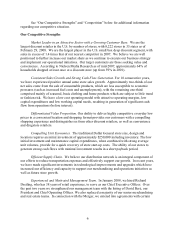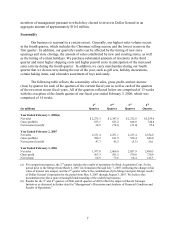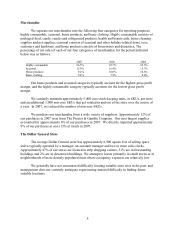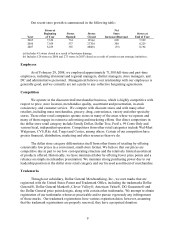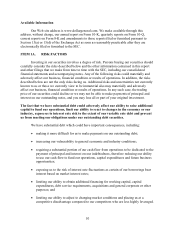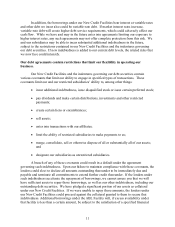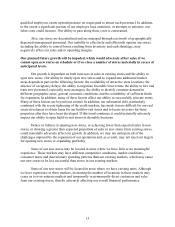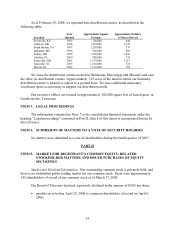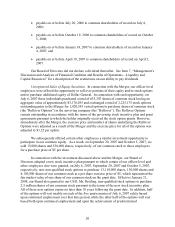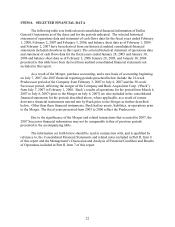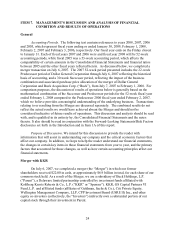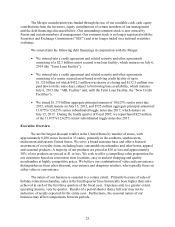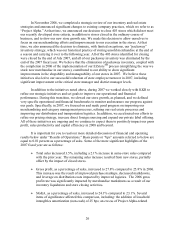Dollar General 2007 Annual Report Download - page 18
Download and view the complete annual report
Please find page 18 of the 2007 Dollar General annual report below. You can navigate through the pages in the report by either clicking on the pages listed below, or by using the keyword search tool below to find specific information within the annual report.16
We are dependent upon the smooth functioning of our distribution network, the capacity of
our distribution centers, and the timely receipt of inventory.
We rely upon the ability to replenish depleted inventory through deliveries to our
distribution centers from vendors and from the distribution centers to our stores by various
means of transportation, including shipments by sea and truck. Labor shortages in the
transportation industry and/or labor inefficiencies associated with certain “driver hours of
service” regulations adopted by the Federal Motor Carriers Safety Administration could
negatively affect transportation costs. In addition, long-term disruptions to the national and
international transportation infrastructure that lead to delays or interruptions of service would
adversely affect our business.
The efficient operation of our business is heavily dependent upon our information systems.
We depend on a variety of information technology systems for the efficient functioning
of our business. We rely on certain software vendors to maintain and periodically upgrade many
of these systems so that they can continue to support our business. The software programs
supporting many of our systems were licensed to us by independent software developers. The
inability of these developers or us to continue to maintain and upgrade these information systems
and software programs would disrupt or reduce the efficiency of our operations if we were
unable to convert to alternate systems in an efficient and timely manner. In addition, costs and
potential problems and interruptions associated with the implementation of new or upgraded
systems and technology or with maintenance or adequate support of existing systems could also
disrupt or reduce the efficiency of our operations. We also rely heavily on our information
technology staff. If we cannot meet our staffing needs in this area, we may not be able to fulfill
our technology initiatives while continuing to provide maintenance on existing systems.
We are subject to governmental regulations, procedures and requirements. A significant
change in, or noncompliance with, these regulations could have a material adverse effect on
our financial performance.
Our business is subject to numerous federal, state and local regulations. Changes in these
regulations, particularly those governing the sale of products, may require extensive system and
operating changes that may be difficult to implement and could increase our cost of doing
business. Untimely compliance or noncompliance with applicable regulations or untimely or
incomplete execution of a required product recall can result in the imposition of penalties,
including loss of licenses or significant fines or monetary penalties, in addition to reputational
damage.
Our current insurance program may expose us to unexpected costs and negatively affect
our financial performance.
Historically, our insurance coverage has reflected deductibles, self-insured retentions,
limits of liability and similar provisions that we believe are prudent based on the dispersion of
our operations. However, there are types of losses we may incur but against which we cannot be
insured or which we believe are not economically reasonable to insure, such as losses due to acts


